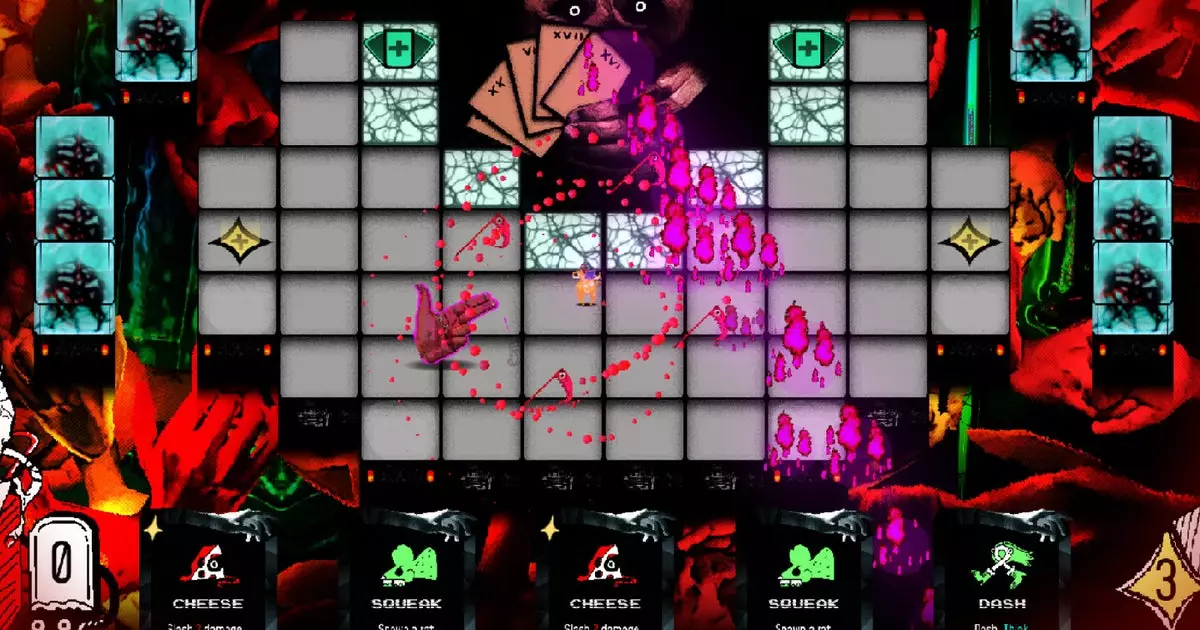The gaming landscape is often punctuated by experiences that defy traditional boundaries, and few games exemplify this trend quite like LYMBUS: Incomplete Edition. This collaboration from Happy Accident Studios showcases a mind-bending fusion of genres, enveloping players in a roguelike bullet hell interlaced with card mechanics. It’s a curious concoction that leaves one questioning the very essence of their existence within the digital universe.
As I ponder the nature of LYMBUS, it feels akin to the jarring wake-up call of discovering something profoundly unsettling in something familiar—like reaching for a snack only to uncover an unsettling piece of one’s subconscious. This is the unique allure that LYMBUS offers. The game’s Steam description, rather provocatively, suggests that it combines players’ cherished genres into a singularly grotesque experience. This makes it more than just another entry in the crowded indie scene; it is a vivid tapestry woven with the threads of our most cherished and disturbed gaming experiences.
At its core, LYMBUS demands strategic thinking tempered with quick reflexes. Players navigate this intricate world by utilizing a deck of cards, each representing various actions like shooting or dodging. However, these cards are not simply tools for combat; they are imbued with a strategic weight that beckons players to think critically about resource management and timing. The necessity to switch between cards while simultaneously evading a barrage of enemy fire evokes a frantic energy that mirrors the chaotic nature of the game’s world.
Set against the backdrop of an intriguing yet ominous narrative, LYMBUS invites players to grapple with the repercussions of a world where human capabilities have been digitally transcribed, and a catastrophic event has plunged most of humanity into oblivion. This premise serves as a creative springboard, transforming every combat encounter into a high-stakes gamble filled with existential questions and frenetic action. The absence of turn-based mechanics amplifies this intensity, forcing players to act quickly and think on their feet as they traverse a landscape rife with danger.
The lore of LYMBUS is as compelling as its gameplay. Set in a retro-futuristic 19XX, it grapples with themes of memory, identity, and human connection, challenging players to reconcile the dystopian elements of its world with the strategies required to navigate it. The concept of diving into a shared unconscious to reclaim lost memories speaks to a deep-seated yearning for understanding in times of chaos, a reflection that is particularly resonant in our increasingly fragmented digital lives.
Moreover, the game artfully merges absurdity and wit, creating a narrative that is both engaging and unsettling. Its humor, which sometimes skews dark, further adds layers to the experience, providing players with moments of levity even in the midst of chaos.
As we await the full release of LYMBUS later this year, it stands poised as a game that not only entertains but also provokes thought. The intersection of complex gameplay mechanics, a captivating narrative, and an overall aesthetic that challenges norms culminate in an experience that is guaranteed to resonate with gamers seeking something distinct. LYMBUS is an invitation into a world where every decision matters—and while it may seem intimidating at first glance, it encapsulates the intrinsic beauty of exploration, both within the game and within ourselves. Ultimately, it promises to be an unforgettable addition to the indie gaming canon.


Leave a Reply